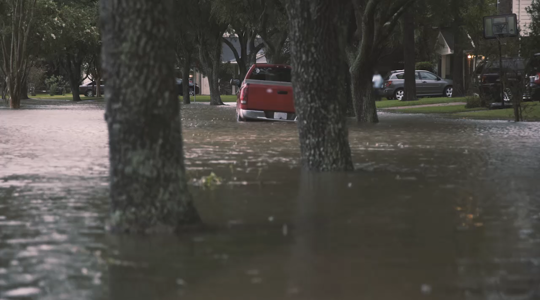Unfair Insurance Practices
A person may bring suit against an insurer who has caused him or her actual damages by engaging in unfair or deceptive acts or practice. For example, the Gulf Coast has been hit hard by hurricanes and tropical storms in recent years. Due to the volume of claims being filed by homeowners and businesses, insurance companies have seen their profit margins take a hit as well. Facing the pressure to reduce their losses, some insurers, and their agents, brokers, and adjusters have turned to prohibited practices to save their money.
- Misrepresenting a material fact or policy provision relating to coverage
- Failing to fully disclose the policy limitations and exclusions prior to purchase.
- Failing to make prompt, fair, and equitable settlement of a claim after the insurer's liability is established
- Failing to promptly, fairly settle one portion of a claim to influence the settlement of an additional claim
- Failing to promptly provide a reasonable explanation of the basis for a claim denial or compromise
- Failing to affirm or deny coverage of a claim within a reasonable time
- Attempting to enforce a full and final release of a claim when only a partial payment has been made
- Refusing to pay a claim without conducting a reasonable investigation
- Delaying a claim solely because there is other insurance available
- Requiring a claimant, as a condition of settlement, provide federal income tax returns for examination or investigation unless claimant is court-ordered, claim involve fire loss, or claim involves lost profits
How Bad Faith Insurance Laws Curb These Practices
There are laws in place to help prevent bad faith insurance practices. When insurers do commit bad faith against a policyholder, these laws allow them to take legal action in response to such abuses and mistreatment. These laws were put in place to protect individuals from unethical practices. You can file a complaint with your state insurance board if your insurer continues to refuse to provide a fair settlement. Once you have done this, an investigation will begin to determine if bad faith practices were really involved. However, taking further legal action is often necessary to obtain the fair claim amount you deserve, as the board cannot force them to pay a claim in full, only levy fines against them. This means you may need to pursue a case on top of the complaint you filed against them.
When Is It Not Bad Faith?
Bad faith practices can cause serious harm to a policyholder. It is important you understand these practices so you don’t suffer abuse from your insurer. However, not all frustrating actions by insurance companies are considered bad faith practices. For example, a disagreement or difference of opinion between an adjuster and policyholder on the total loss amount doesn’t necessarily equate to bad faith. On the other hand, if the adjuster failed to provide any proof or support of their deduction to your claim amount, then bad faith practices may have played a part. Keep in mind, a simple mistake or error on the part of your insurer doesn’t mean they acted in bad faith.
Bad Faith Insurance Claims
Insurance companies that unreasonably deny claim coverage are acting in bad faith. Not every denied insurance claim is bad faith, but if you have been denied coverage or have been offered a reduced settlement without a proper explanation, you may be entitled to bring a claim.
- Unwarranted denial of coverage
- Failure to communicate pertinent information
- Refusal to pay the claim without an investigation
- Failure to deny or pay the claim promptly
- Failure to attempt to come to a fair and reasonable settlement when liability is apparent
- Offering a settlement substantially smaller than the true value of the claim
- Failure to provide a reasonable explanation for denials
- Failure to enter into settlement negotiations
- Failure to respond to a time-limit demand
- Failure to disclose policy limits and/or exclusions
Call (888) 493-1629 to Schedule a Free Consultation with Our Firm
If you are a business or homeowner who has suffered hardship as the result of an insurance company's unfair or deceptive practices, contact our Houston insurance lawyers to learn about your options. We know the deceptive tactics that insurance companies can utilize, and we are dedicated to doing everything we can to helping our clients obtain the just outcome they deserve. You can be confident knowing that should you choose to work with us that we will do everything possible to provide our clients with the high-quality level of service they deserve.
Contact Arnold & Itkin today to find out what our insurance attorneys can do to expose bad faith and help you recover the full value of your claim, plus damages.
